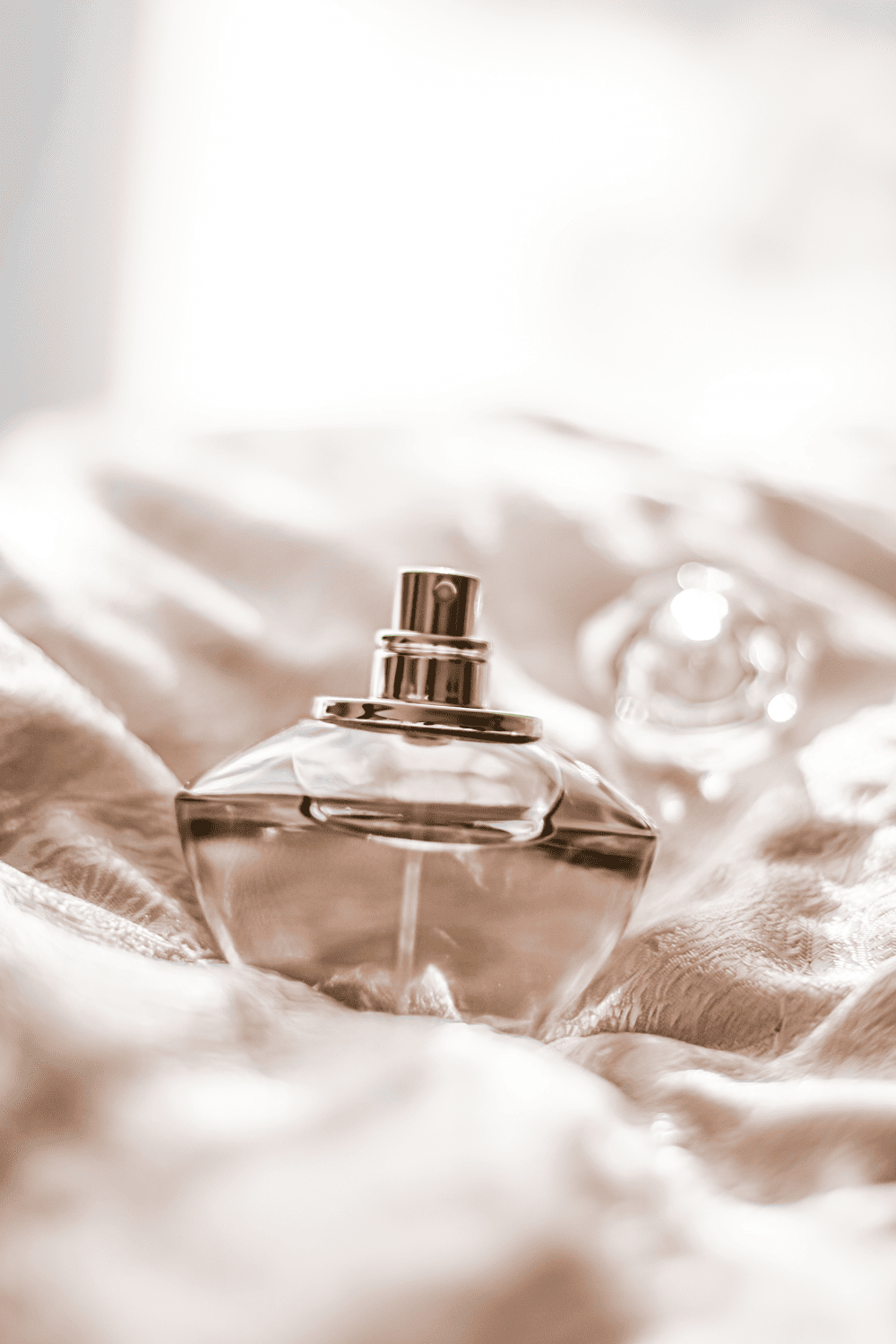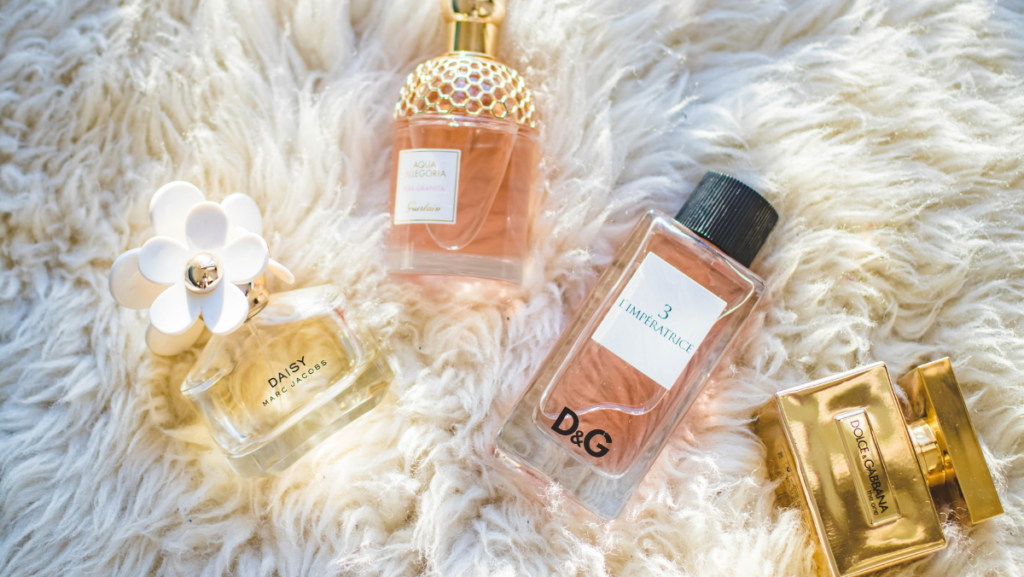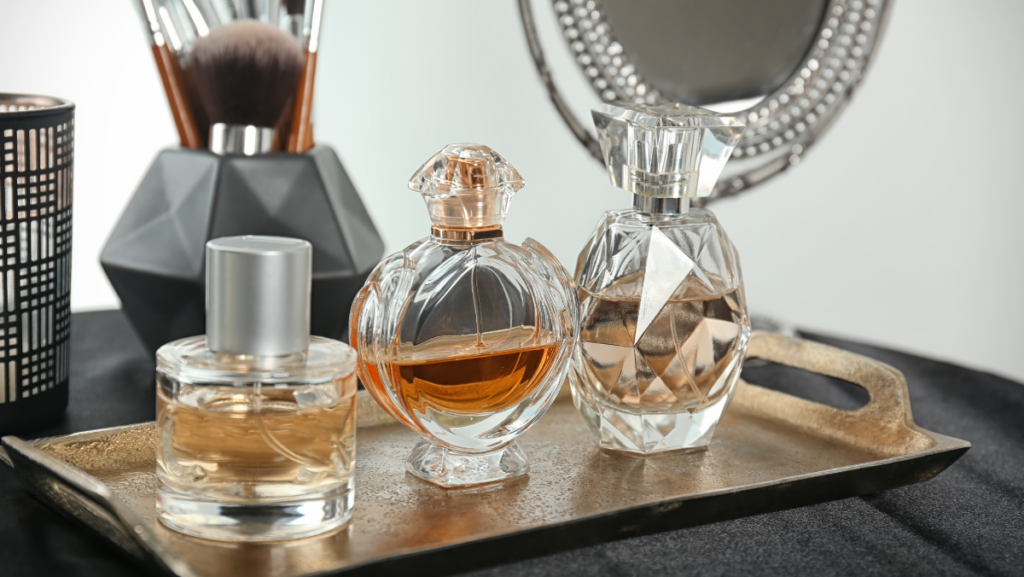
If you’re anything like me, you appreciate the allure and luxury feel of a well-chosen perfume you wear daily. But have you ever wondered, “Does perfume expire?”
I see you stealing a glance at your favorite bottle in doubt. Don’t worry, dear! I will answer all your questions regarding perfume expiration.
How many years should you keep perfume? How to tell if your perfume has expired? Is it OK to use expired perfume?
Today, we’ll delve into the intriguing world of perfume shelf life, exploring whether your favorite scents ever lose their sparkle. So, join me as we unravel the mysteries of perfume expiration!
Does Perfume Expire?
Ah, the moment of truth has arrived! Does perfume truly have an expiration date? I don’t want to keep you on the edge of your seats, but the answer isn’t as straightforward as we might hope.
Perfumes do expire because they undergo changes over time that can impact their quality and scent. But they don’t come with a clear expiration date like food products.
As perfumes age, they can undergo changes that modify their original qualities. When we spray our beloved bottle, air enters the product, causing oxidation, exposure to external factors, and breakdown of the formula.
While some perfumes gracefully mature with time (like fine wine), others may lose their initial vibrancy or even become unpleasant to the nose. Eventually, all fragrances will become less potent or stinky.
The regulations on expiration dates of cosmetics can be tricky. While you may not find an exact expiration date for your perfume, you may find a PAO.
A PAO stands for “period after opening” and means how long you can use the product after opening and using it for the first time. You will most likely find the PAO on the packaging, not the bottle itself!
Pro tip: Keep the packaging or note the PAO of your perfume down. Then you can calculate when it will be time to say goodbye.

Does Unopened Perfume Expire?
But what about those unopened bottles of perfume languishing in the depths of your vanity or tucked away in a forgotten drawer? Do they have an expiration date as well? The answer might surprise you.
Unopened perfume generally has a longer shelf life compared to opened ones. Since unopened bottles remain sealed, they are better protected from factors that can accelerate degradation. However, this doesn’t mean they are exempt from the passage of time.
While unopened perfume may last longer, it’s still important to periodically assess its quality before using it. If you notice any of the aforementioned signs of expiration, it’s best to proceed with caution.
How To Tell That Your Perfume Has Gone Bad?
So, how can you tell if your cherished fragrance has reached its wearability limit? Let’s explore the signs that indicate a perfume may have expired.
- Changes In Scent: One sign of perfume expiration you won’t miss is a noticeable change in its scent.
The fragrance might become dull, stale, or develop an off-putting odor. The once harmonious notes may no longer blend seamlessly, and the overall experience might be quite unpleasant.
- Changes In Color: Over time, perfume may undergo color changes. Slight color variations can be normal due to ingredient interactions or sun exposure.
However, a significant shift, such as darkening or cloudiness, could indicate degradation. Be wary of funny smells, and once you detect something off, toss it out!
- Consistency Alterations: When its ingredients break down, expired perfume might develop a thicker, syrupy consistency, or become even thinner.
- Reduced Longevity: If your perfume no longer lasts as long on your skin as it used to. Reduced potency could be a sign of expiration.
- Your Skin Reacts To It: Fragrances are made up of chemicals. However, their skin safety is ensured by extensive testing.
However, when the chemicals break down, they are more likely to cause irritation or allergic reaction to the skin.
Always watch out for signs like redness, itchiness, or skin spots. If you do, contact your doctor immediately and stop using your old perfume!
It’s important to note that these signs don’t always manifest simultaneously or uniformly. Some perfumes may exhibit one or two indicators of expiration while still retaining their overall charm. Don’t be fooled – better be safe than sorry!
What Is The Shelf Life Of Perfume?
Now that you are aware of perfume expiration, you might wonder how long you have before bidding your opened or unopened bottles goodbye.
According to FDA, “a product’s “shelf life” generally means the length of time you can expect a product to look and act as expected and to stay safe for use. This length of time varies, depending on the type of product, how it is used, and how it is stored.”
So, what is the shelf life of perfume? Ah, that’s a question that often stirs curiosity and perplexity.
To understand this, let’s first define what shelf life means, specifically regarding fragrances. In simple words, it refers to the period during which a perfume retains its original quality, scent, and performance.
Perfume shelf life is influenced by several factors, including:
- the ingredients used,
- the composition of the fragrance,
- the overall quality of the product,
- and storage conditions
That is why different fragrances can have varying shelf lives. Unopened bottles can last from one to several years, typically 3 to 5 years. Opened bottles should last less than that.
However, note that this is merely a general guideline. Some perfumes can maintain their integrity longer, while others may deteriorate before the designated time frame.
It all comes down to how well you treat and store your favorite perfumes. More on that later!
What Can Affect the Shelf Life of Perfume?
Perfumes are delicate creations, susceptible to the influence of various factors that can impact their shelf life. Let’s take a closer look at the key elements that can affect how long your favorite fragrance remains in optimal condition.
Which characteristics of the perfume can affect its shelf life?
- Ingredients: The quality and stability of perfume ingredients play a crucial role in determining its shelf life.
Certain ingredients, like natural essences and delicate floral notes, can be more prone to degradation over time.
On the other hand, fragrances formulated with robust synthetic compounds or heavier notes tend to have a longer shelf life.
- Composition: The overall composition of a perfume, including the balance and interplay of its various scent notes, affects how it ages. Well-structured and carefully crafted fragrances are more likely to retain their allure for an extended period.
- Quality: The quality of the perfume itself, including the manufacturing processes and storage conditions, can significantly impact its shelf life. Perfumes produced by reputable brands and stored under ideal conditions tend to have a longer lifespan.
- Packaging: The quality of the bottle and its seal play a crucial role in preserving the fragrance. Perfumes packaged in dark, opaque bottles with tight caps or sprayers provide better protection against light, air, and moisture, thus extending their shelf life.
External Factors That Affect The Shelf Of Perfume
Storage Conditions – The environment in which perfumes are stored plays a significant role in their longevity. Here are a few environmental factors to be mindful of:
- Light Exposure: Direct sunlight and prolonged exposure to artificial light sources can degrade the fragrance molecules and alter the scent. Keep your perfumes away from windowsills and well-lit areas.
- Temperature Fluctuations: Extreme temperatures, both hot and cold, can affect the chemical stability of perfumes. Avoid storing your fragrances in places prone to temperature fluctuations, such as near heaters, radiators, or in the refrigerator.
- Humidity: High humidity levels can lead to moisture seeping into the perfume bottle, causing changes in the fragrance composition.
Usage Habits – The way we use and handle our perfumes can also impact their shelf life. Consider breaking the following “bad” habits that shorten your fragrance’s lifespan:
- Exposure to Air: When you leave the bottle open for extended periods or spray the perfume multiple times a day, you expose it to unnecessary air contact. This can accelerate oxidation and degradation.
- Contamination: Ensure your perfume bottles and sprayers remain clean to avoid contamination. Any foreign particles or substances introduced into the fragrance can compromise its quality and longevity.
How to Properly Store Perfume for a Longer Shelf Life
By now, you have probably swallowed the fact that perfume does expire. So, is there anything you can do to prolong its shelf life?
Ensuring the proper storage of your perfumes can significantly extend their lifespan. Also, correct usage will allow you to enjoy their captivating scents for years to come.
Follow these tips to keep your fragrances in their prime:
- Prefer Cool and Dark Environments: Store your perfumes in a cool, dry place away from direct sunlight and heat sources. Consider a drawer or a cabinet in a room with a relatively stable temperature.
- Employ Airtight Containers: Perfumes are sensitive to air exposure. Opt for bottles with tight caps or sprayers that limit air contact when not in use. This helps prevent unnecessary oxidation and degradation.
- Avoid Bathroom Storage: Although it can be convenient, storing perfumes in the bathroom is not your best bet. The fluctuating humidity levels and heat from showers can negatively impact the fragrance’s quality.
- Avoid Excessive Shaking: While it may be tempting to give your perfume bottle a vigorous shake, excessive agitation can introduce unnecessary air and disrupt the delicate balance of the scent.
Gently roll or swirl the bottle to mix the fragrance, if needed. However, if you notice a separation of phases in your bottle, I would advise you to toss it instead of shaking it.
- Preventing Direct Sunlight Exposure: Shield your perfumes from direct sunlight by storing them in opaque containers or keeping them inside their boxes. This helps protect the fragrance from UV rays, which can degrade the scent.
By implementing these storage practices, you can maximize the lifespan of your perfumes and savor their captivating aromas for years to come.

Can You Use Expired Perfume?
I saved the most burning question for last: Can you use expired perfume? I would strongly advise you to refrain from using a fragrance that shows signs of expiration because it can potentially lead to safety concerns.
Expired perfumes can potentially cause allergic reactions or skin irritation due to changes in their composition. This holds especially true if you have sensitive skin or a history of allergies.
You can always test the waters by performing a simple patch test on a small area of skin before using it. If your skin shows signs of discomfort, get that perfume out of your vanity!
Alternative Uses For Expired Perfume
If you find that your perfume has expired and you’re hesitant to use it on your skin, don’t fret! Expired perfumes can still find purpose in other ways.
Consider using them as home fragrances by spritzing them in your living space or on a piece of fabric. They can also serve as delightful linen or clothing fresheners.
By repurposing expired perfumes, you can still enjoy their fragrance safely and creatively, adding a touch of elegance to your surroundings.
Pro tip: Make sure that the perfume won’t stain your fabrics!
Does Perfume Expire? A Conclusion
The answer to your question has been clarified: perfumes do expire!
We’ve journeyed through the realm of perfume expiration and gained valuable insights into the shelf life, signs of expiration, and best practices for storage.
The bottom line is that if your perfume shows signs of expiration, please resist the temptation to use it. Your safety and your skin’s happiness come first.
So, my fragrance-loving companions, remember to embrace the joy of your perfumes while they last. Farewell, expired perfumes, and thank you for the fragrant tales we’ve shared!
Frequently Asked Questions
